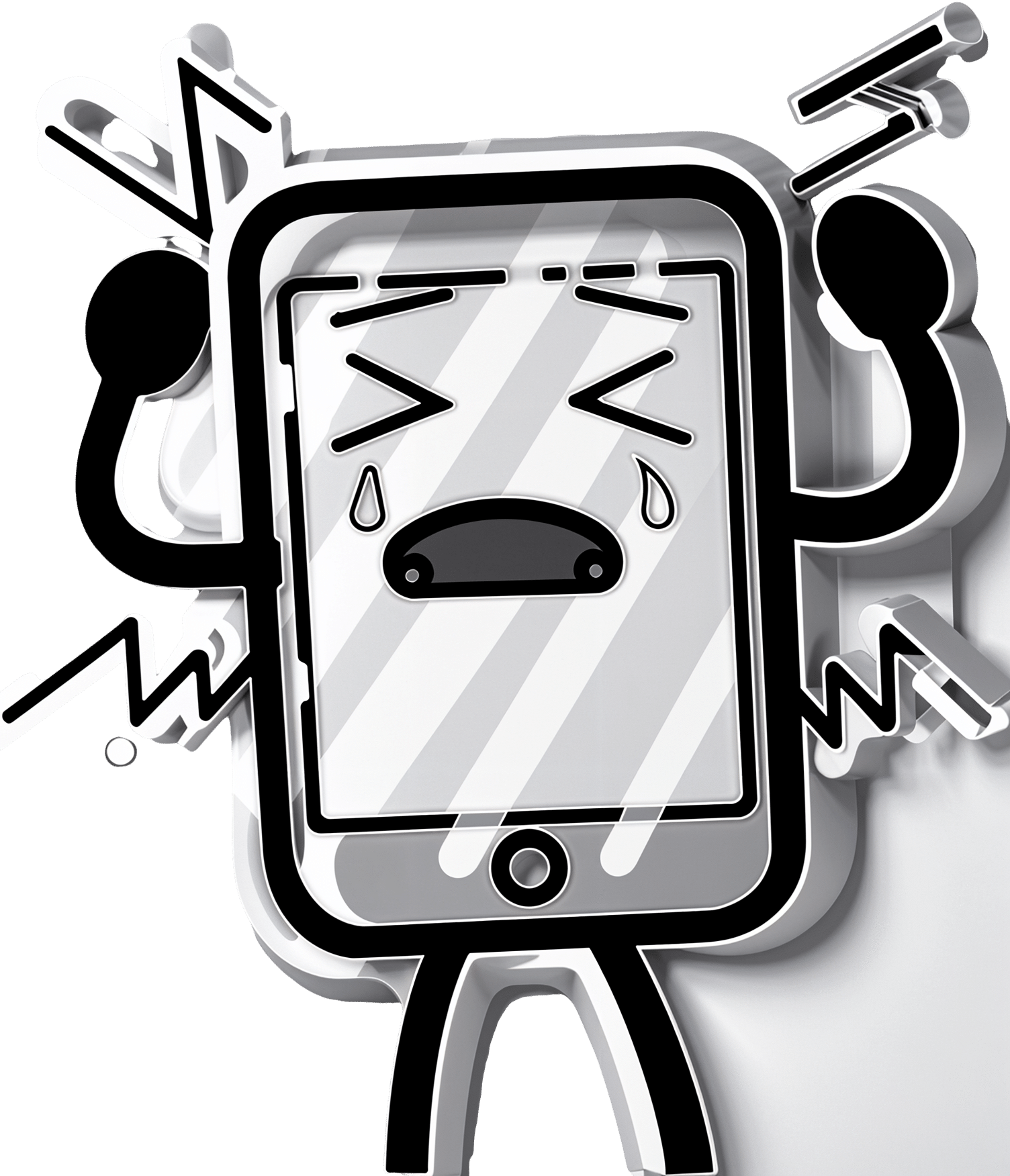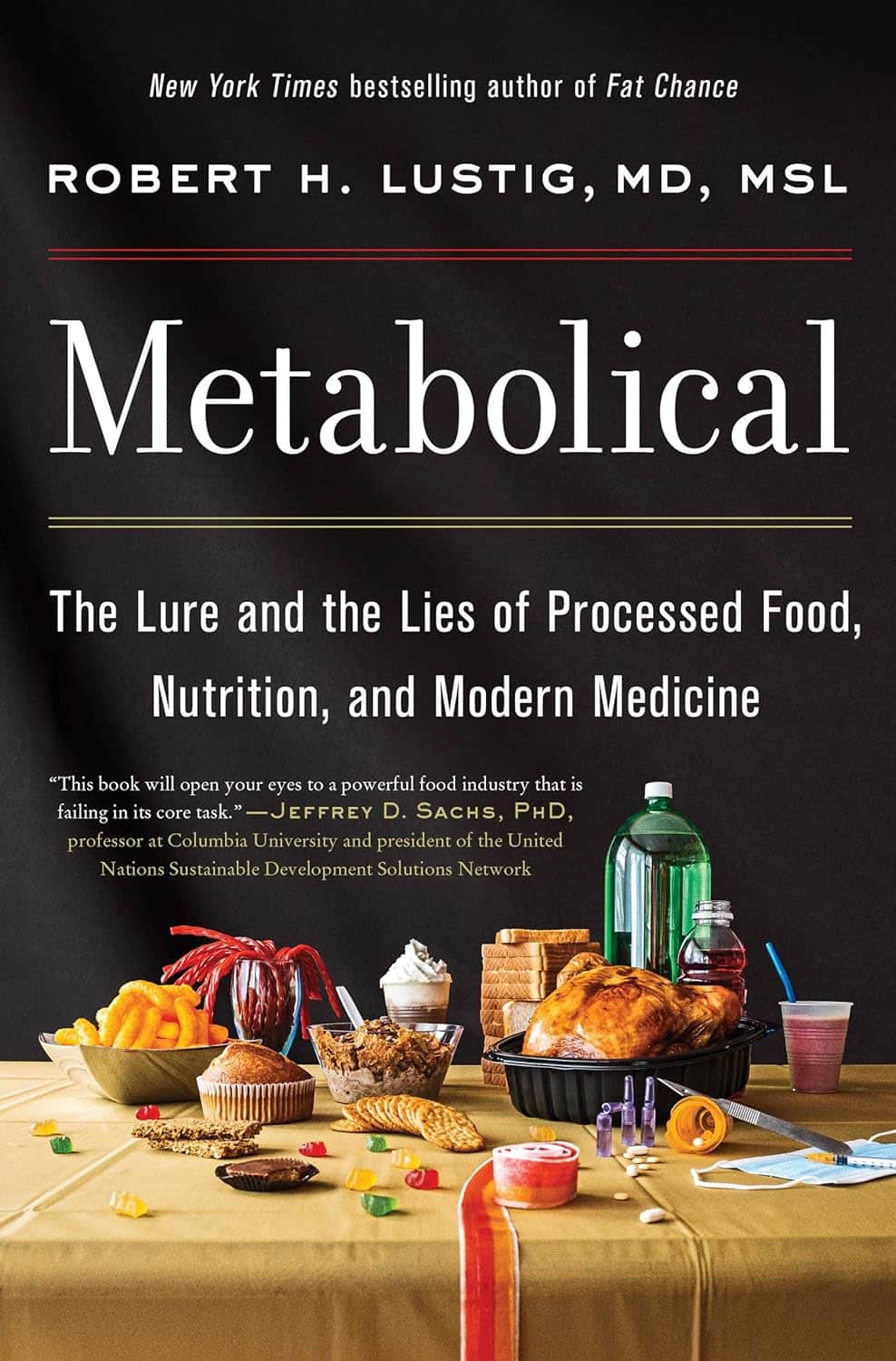
Get Rid Of Female Facial Hair Easily
10almonds is reader-supported. We may, at no cost to you, receive a portion of sales if you purchase a product through a link in this article.
Dr. Sam Ellis, dermatologist, explains:
Hair today; gone tomorrow
While a little peach fuzz is pretty ubiquitous, coarser hairs are less common in women especially earlier in life. However, even before menopause, such hair can be caused by main things, ranging from PCOS to genetics and more. In most cases, the underlying issue is excess androgen production, for one reason or another (i.e. there are many possible reasons, beyond the scope of this article).
Options for dealing with this include…
- Topical, such as eflornithine (e.g. Vaniqa) thins terminal hairs (those are the coarse kind); a course of 6–8 weeks continued use is needed.
- Hormonal, such as estrogen (opposes testosterone and suppresses it), progesterone (downregulates 5α-reductase, which means less serum testosterone is converted to the more powerful dihydrogen testosterone (DHT) form), and spironolactone or other testosterone-blockers; not hormones themselves, but they do what it says on the tin (block testosterone).
- Non-medical, such as electrolysis, laser, and IPL. Electrolysis works on all hair colors but takes longer; laser needs to be darker hair against paler skin* (because it works by superheating the pigment of the hair while not doing the same to the skin) but takes more treatments, and IPL is a less-effective more-convenient at-home option, that works on the same principles as laser (and so has the same color-based requirements), and simply takes even longer than laser.
*so for example:
- Black hair on white skin? Yes
- Red hair on white skin? Potentially; it depends on the level of pigmentation. But it’s probably not the best option.
- Gray/blonde hair on white skin? No
- Black hair on mid-tone skin? Yes, but a slower pace may be needed for safety
- Anything else on mid-tone skin? No
- Anything on dark skin? No
For more on all of this, enjoy:
Click Here If The Embedded Video Doesn’t Load Automatically!
Want to learn more?
You might also like to read:
Too Much Or Too Little Testosterone?
Take care!
Don’t Forget…
Did you arrive here from our newsletter? Don’t forget to return to the email to continue learning!
Recommended
Learn to Age Gracefully
Join the 98k+ American women taking control of their health & aging with our 100% free (and fun!) daily emails:

How can I stop overthinking everything? A clinical psychologist offers solutions
10almonds is reader-supported. We may, at no cost to you, receive a portion of sales if you purchase a product through a link in this article.
As a clinical psychologist, I often have clients say they are having trouble with thoughts “on a loop” in their head, which they find difficult to manage.
While rumination and overthinking are often considered the same thing, they are slightly different (though linked). Rumination is having thoughts on repeat in our minds. This can lead to overthinking – analysing those thoughts without finding solutions or solving the problem.
It’s like a vinyl record playing the same part of the song over and over. With a record, this is usually because of a scratch. Why we overthink is a little more complicated.
We’re on the lookout for threats
Our brains are hardwired to look for threats, to make a plan to address those threats and keep us safe. Those perceived threats may be based on past experiences, or may be the “what ifs” we imagine could happen in the future.
Our “what ifs” are usually negative outcomes. These are what we call “hot thoughts” – they bring up a lot of emotion (particularly sadness, worry or anger), which means we can easily get stuck on those thoughts and keep going over them.
However, because they are about things that have either already happened or might happen in the future (but are not happening now), we cannot fix the problem, so we keep going over the same thoughts.
Who overthinks?
Most people find themselves in situations at one time or another when they overthink.
Some people are more likely to ruminate. People who have had prior challenges or experienced trauma may have come to expect threats and look for them more than people who have not had adversities.
Deep thinkers, people who are prone to anxiety or low mood, and those who are sensitive or feel emotions deeply are also more likely to ruminate and overthink.

We all overthink from time to time, but some people are more prone to rumination.
BĀBI/UnsplashAlso, when we are stressed, our emotions tend to be stronger and last longer, and our thoughts can be less accurate, which means we can get stuck on thoughts more than we would usually.
Being run down or physically unwell can also mean our thoughts are harder to tackle and manage.
Acknowledge your feelings
When thoughts go on repeat, it is helpful to use both emotion-focused and problem-focused strategies.
Being emotion-focused means figuring out how we feel about something and addressing those feelings. For example, we might feel regret, anger or sadness about something that has happened, or worry about something that might happen.
Acknowledging those emotions, using self-care techniques and accessing social support to talk about and manage your feelings will be helpful.
The second part is being problem-focused. Looking at what you would do differently (if the thoughts are about something from your past) and making a plan for dealing with future possibilities your thoughts are raising.
But it is difficult to plan for all eventualities, so this strategy has limited usefulness.
What is more helpful is to make a plan for one or two of the more likely possibilities and accept there may be things that happen you haven’t thought of.
Think about why these thoughts are showing up
Our feelings and experiences are information; it is important to ask what this information is telling you and why these thoughts are showing up now.
For example, university has just started again. Parents of high school leavers might be lying awake at night (which is when rumination and overthinking is common) worrying about their young person.

Think of what the information is telling you.
TheVisualsYouNeed/ShutterstockKnowing how you would respond to some more likely possibilities (such as they will need money, they might be lonely or homesick) might be helpful.
But overthinking is also a sign of a new stage in both your lives, and needing to accept less control over your child’s choices and lives, while wanting the best for them. Recognising this means you can also talk about those feelings with others.
Let the thoughts go
A useful way to manage rumination or overthinking is “change, accept, and let go”.
Challenge and change aspects of your thoughts where you can. For example, the chance that your young person will run out of money and have no food and starve (overthinking tends to lead to your brain coming up with catastrophic outcomes!) is not likely.
You could plan to check in with your child regularly about how they are coping financially and encourage them to access budgeting support from university services.
Your thoughts are just ideas. They are not necessarily true or accurate, but when we overthink and have them on repeat, they can start to feel true because they become familiar. Coming up with a more realistic thought can help stop the loop of the unhelpful thought.
Accepting your emotions and finding ways to manage those (good self-care, social support, communication with those close to you) will also be helpful. As will accepting that life inevitably involves a lack of complete control over outcomes and possibilities life may throw at us. What we do have control over is our reactions and behaviours.
Remember, you have a 100% success rate of getting through challenges up until this point. You might have wanted to do things differently (and can plan to do that) but nevertheless, you coped and got through.
So, the last part is letting go of the need to know exactly how things will turn out, and believing in your ability (and sometimes others’) to cope.
What else can you do?
A stressed out and tired brain will be more likely to overthink, leading to more stress and creating a cycle that can affect your wellbeing.
So it’s important to manage your stress levels by eating and sleeping well, moving your body, doing things you enjoy, seeing people you care about, and doing things that fuel your soul and spirit.

Find ways to manage your stress levels.
antoniodiaz/ShutterstockDistraction – with pleasurable activities and people who bring you joy – can also get your thoughts off repeat.
If you do find overthinking is affecting your life, and your levels of anxiety are rising or your mood is dropping (your sleep, appetite and enjoyment of life and people is being negatively affected), it might be time to talk to someone and get some strategies to manage.
When things become too difficult to manage yourself (or with the help of those close to you), a therapist can provide tools that have been proven to be helpful. Some helpful tools to manage worry and your thoughts can also be found here.
When you find yourself overthinking, think about why you are having “hot thoughts”, acknowledge your feelings and do some future-focused problem solving. But also accept life can be unpredictable and focus on having faith in your ability to cope.

Kirsty Ross, Associate Professor and Senior Clinical Psychologist, Massey University
This article is republished from The Conversation under a Creative Commons license. Read the original article.
Share This Post

Staying Sane In A Hyper-Connected World
10almonds is reader-supported. We may, at no cost to you, receive a portion of sales if you purchase a product through a link in this article.
Staying Sane In A Hyper-Connected World
There’s a war over there, a genocide in progress somewhere else, and another disease is ravaging the population of somewhere most Americans would struggle to point out on the map. Not only that, but that one politician is at it again, and sweeping wildfires are not doing climate change any favors.
To borrow an expression from Gen-Z…
“Oof”.
A Very Modern Mental Health Menace
For thousands of years, we have had wars and genocides and plagues and corrupt politicians and assorted major disasters. Dire circumstances are not new to us as a species. So what is new?
As some reactionary said during the dot-com boom, “the Internet doesn’t make people stupid; it just makes their stupidity more accessible”.
The same is true now of The Horrors™.
The Internet doesn’t, by and large, make the world worse. But what it does do is make the bad things much, much more accessible.
Understanding and empathy are not bad things, but watch out…
- When soldiers came home from the First World War, those who hadn’t been there had no conception of the horrors that had been endured. That made it harder for the survivors to get support. That was bad.
- Nowadays, while mass media covering horrors certainly doesn’t convey the half of it, even the half it does convey can be overwhelming. This is also bad.
The insidious part is: while people are subjectively reporting good physical/mental health, the reports of the symptoms of poor physical/mental health from the same population do not agree:
Stress in America 2023: A nation grappling with psychological impacts of collective trauma
Should we just not watch the news?
In principle that’s an option, but it’s difficult to avoid, unless you truly live under a rock, and also do not frequent any social media at all. And besides, isn’t it our duty as citizens of this world to stay informed? How else can we make informed choices?
Staying informed, mindfully
There are steps that can be taken to keep ourselves informed, while protecting our mental health:
- Choose your sources wisely. Primary sources (e.g. tweets and videos from people who are there) will usually be most authentic, but also most traumatizing. Dispassionate broadsheets may gloss over or misrepresent things more (something that can be countered a bit by reading an opposing view from a publication you hate on principle), but will offer more of an emotional buffer.
- Boundary your consumption of the news. Set a timer and avoid doomscrolling. Your phone (or other device) may help with this if you set a screentime limit per app where you consume that kind of media.
- Take (again, boundaried) time to reflect. If you don’t, your brain will keep grinding at it “like a fork in the garbage disposal”. Talking about your feelings on the topic with a trusted person is great; journaling is also a top-tier more private option.
- If you feel helpless, help. Taking even small actions to help in the face of suffering somewhere else (e.g. donating to relief funds, engaging in advocacy / hounding your government about it), can help alleviate feelings of anguish and helplessness. And of course, as a bonus, it actually helps in the real world too.
- When you relax, relax fully. Even critical care doctors need downtime, nobody can be “always on” without burning out. So whatever distracts and relaxes you completely, make sure to make time for that too.
Want to know more?
That’s all we have room for today, but you might like to check out:
- Distressing images and videos can take a toll on our mental health. How can we stay informed without being traumatised?
- PTSD expert on how to protect yourself and your kids from overexposure to war images from the Mideast
You also might like our previous main features:
- C-PTSD, And What To Do When Life Genuinely Sucks
- A Surprisingly Powerful Tool: Eye Movement Desensitization & Reprocessing
Take care!
Share This Post

Metabolical – by Dr. Robert Lustig
10almonds is reader-supported. We may, at no cost to you, receive a portion of sales if you purchase a product through a link in this article.
The premise of this book itself is not novel: processed food is bad, food giants lie to us, and eating better makes us less prone to disease (especially metabolic disease).
What this book does offer that’s less commonly found is a comprehensive guide, a walkthrough of each relevant what and why and how, with plenty of good science and practical real-world examples.
In terms of unique selling points, perhaps the greatest strength of this book is its focus on two things in particular that affect many aspects of health: looking after our liver, and looking after our gut.
The style is… A little dramatic perhaps, but that’s just the style; there’s no hyperbole, he is stating well-established scientific facts.
Bottom line: very much of chronic disease would be a lot less diseasey if we all ate with these aspects of our health in mind. This book’s a comprehensive guide to that.
Click here to check out Metabolical, and let food be thy medicine!
Share This Post
Related Posts

How can I stop overthinking everything? A clinical psychologist offers solutions
10almonds is reader-supported. We may, at no cost to you, receive a portion of sales if you purchase a product through a link in this article.
As a clinical psychologist, I often have clients say they are having trouble with thoughts “on a loop” in their head, which they find difficult to manage.
While rumination and overthinking are often considered the same thing, they are slightly different (though linked). Rumination is having thoughts on repeat in our minds. This can lead to overthinking – analysing those thoughts without finding solutions or solving the problem.
It’s like a vinyl record playing the same part of the song over and over. With a record, this is usually because of a scratch. Why we overthink is a little more complicated.
We’re on the lookout for threats
Our brains are hardwired to look for threats, to make a plan to address those threats and keep us safe. Those perceived threats may be based on past experiences, or may be the “what ifs” we imagine could happen in the future.
Our “what ifs” are usually negative outcomes. These are what we call “hot thoughts” – they bring up a lot of emotion (particularly sadness, worry or anger), which means we can easily get stuck on those thoughts and keep going over them.
However, because they are about things that have either already happened or might happen in the future (but are not happening now), we cannot fix the problem, so we keep going over the same thoughts.
Who overthinks?
Most people find themselves in situations at one time or another when they overthink.
Some people are more likely to ruminate. People who have had prior challenges or experienced trauma may have come to expect threats and look for them more than people who have not had adversities.
Deep thinkers, people who are prone to anxiety or low mood, and those who are sensitive or feel emotions deeply are also more likely to ruminate and overthink.

We all overthink from time to time, but some people are more prone to rumination.
BĀBI/UnsplashAlso, when we are stressed, our emotions tend to be stronger and last longer, and our thoughts can be less accurate, which means we can get stuck on thoughts more than we would usually.
Being run down or physically unwell can also mean our thoughts are harder to tackle and manage.
Acknowledge your feelings
When thoughts go on repeat, it is helpful to use both emotion-focused and problem-focused strategies.
Being emotion-focused means figuring out how we feel about something and addressing those feelings. For example, we might feel regret, anger or sadness about something that has happened, or worry about something that might happen.
Acknowledging those emotions, using self-care techniques and accessing social support to talk about and manage your feelings will be helpful.
The second part is being problem-focused. Looking at what you would do differently (if the thoughts are about something from your past) and making a plan for dealing with future possibilities your thoughts are raising.
But it is difficult to plan for all eventualities, so this strategy has limited usefulness.
What is more helpful is to make a plan for one or two of the more likely possibilities and accept there may be things that happen you haven’t thought of.
Think about why these thoughts are showing up
Our feelings and experiences are information; it is important to ask what this information is telling you and why these thoughts are showing up now.
For example, university has just started again. Parents of high school leavers might be lying awake at night (which is when rumination and overthinking is common) worrying about their young person.

Think of what the information is telling you.
TheVisualsYouNeed/ShutterstockKnowing how you would respond to some more likely possibilities (such as they will need money, they might be lonely or homesick) might be helpful.
But overthinking is also a sign of a new stage in both your lives, and needing to accept less control over your child’s choices and lives, while wanting the best for them. Recognising this means you can also talk about those feelings with others.
Let the thoughts go
A useful way to manage rumination or overthinking is “change, accept, and let go”.
Challenge and change aspects of your thoughts where you can. For example, the chance that your young person will run out of money and have no food and starve (overthinking tends to lead to your brain coming up with catastrophic outcomes!) is not likely.
You could plan to check in with your child regularly about how they are coping financially and encourage them to access budgeting support from university services.
Your thoughts are just ideas. They are not necessarily true or accurate, but when we overthink and have them on repeat, they can start to feel true because they become familiar. Coming up with a more realistic thought can help stop the loop of the unhelpful thought.
Accepting your emotions and finding ways to manage those (good self-care, social support, communication with those close to you) will also be helpful. As will accepting that life inevitably involves a lack of complete control over outcomes and possibilities life may throw at us. What we do have control over is our reactions and behaviours.
Remember, you have a 100% success rate of getting through challenges up until this point. You might have wanted to do things differently (and can plan to do that) but nevertheless, you coped and got through.
So, the last part is letting go of the need to know exactly how things will turn out, and believing in your ability (and sometimes others’) to cope.
What else can you do?
A stressed out and tired brain will be more likely to overthink, leading to more stress and creating a cycle that can affect your wellbeing.
So it’s important to manage your stress levels by eating and sleeping well, moving your body, doing things you enjoy, seeing people you care about, and doing things that fuel your soul and spirit.

Find ways to manage your stress levels.
antoniodiaz/ShutterstockDistraction – with pleasurable activities and people who bring you joy – can also get your thoughts off repeat.
If you do find overthinking is affecting your life, and your levels of anxiety are rising or your mood is dropping (your sleep, appetite and enjoyment of life and people is being negatively affected), it might be time to talk to someone and get some strategies to manage.
When things become too difficult to manage yourself (or with the help of those close to you), a therapist can provide tools that have been proven to be helpful. Some helpful tools to manage worry and your thoughts can also be found here.
When you find yourself overthinking, think about why you are having “hot thoughts”, acknowledge your feelings and do some future-focused problem solving. But also accept life can be unpredictable and focus on having faith in your ability to cope.

Kirsty Ross, Associate Professor and Senior Clinical Psychologist, Massey University
This article is republished from The Conversation under a Creative Commons license. Read the original article.
Don’t Forget…
Did you arrive here from our newsletter? Don’t forget to return to the email to continue learning!
Learn to Age Gracefully
Join the 98k+ American women taking control of their health & aging with our 100% free (and fun!) daily emails:

Optimism Seriously Increases Longevity!
10almonds is reader-supported. We may, at no cost to you, receive a portion of sales if you purchase a product through a link in this article.
Always look on the bright side for life
❝I’m not a pessimist; I’m a realist!❞
~ every pessimist ever
To believe self-reports, the world is divided between optimists and realists. But how does your outlook measure up, really?
Below, we’ve included a link to a test, and like most free online tests, this is offered “as-is” with the usual caveats about not being a clinical diagnostic tool, this one actually has a fair amount of scientific weight behind it:
❝Empirical testing has indicated the validity of the Optimism Pessimism Instrument as published in the scientific journal Current Psychology: Research and Reviews.
The IDRlabs Optimism/Pessimism Test (IDR-OPT) was developed by IDRlabs. The IDR-OPT is based on the Optimism/Pessimism Instrument (OPI) developed by Dr. William Dember, Dr. Stephanie Martin, Dr. Mary Hummer, Dr. Steven Howe, and Dr. Richard Melton, at the University of Cincinnati.❞
Take This Short (1–2 mins) Test
How did you score? And what could you do to improve on that score?
We said before that we’d do a main feature on this sometime, and today’s the day! Fits with the theme of Easter too, as for those who observe, this is a time for a celebration of hope, new beginnings, and life stepping out of the shadows.
On which note, before we go any further, let’s look at a very big “why” of optimism…
There have been many studies done regards optimism and health, and they generally come to the same conclusion: optimism is simply good for the health.
Here’s an example. It’s a longitudinal study, and it followed 121,700 women (what a sample size!) for eight years. It controlled for all kinds of other lifestyle factors (especially smoking, drinking, diet, and exercise habits, as well as pre-existing medical conditions), so this wasn’t a case of “people who are healthy are more optimistic as a result. And, in the researchers’ own words…
❝We found strong and statistically significant associations of increasing levels of optimism with decreasing risks of mortality, including mortality due each major cause of death, such as cancer, heart disease, stroke, respiratory disease, and infection.
Importantly, findings were maintained after close control for potential confounding factors, including sociodemographic characteristics and depression❞
Read: Optimism and Cause-Specific Mortality: A Prospective Cohort Study
So that’s the why. Now for the how…
Positive thinking is not what you think it is
A lot of people think of “think positive thoughts” as a very wishy-washy platitude, but positive thinking isn’t about ignoring what’s wrong, or burying every negative emotion.
Rather, it is taking advantage of the basic CBT, DBT, and, for that matter, NLP principles:
- Our feelings are driven by our thoughts
- Our thoughts can be changed by how we frame things
This is a lot like the idea that “there’s not such thing as bad weather; only the wrong clothes”. Clearly written by someone who’s never been in a hurricane, but by and large, the principle stands true.
For example…
- Most problems can be reframed as opportunities
- Replace “I have to…” with “I get to…”
- Will the task be arduous? It’ll be all the better looking back on it.
- Did you fail abjectly? Be proud that you lived true to your values anyway.
A lot of this is about focusing on what you can control. If you live your life by your values (first figure out what they are, if you haven’t already), then that will become a reassuring thing that you can always count on, no matter what.
Practice positive self-talk (eliminate the negative)
We often learn, usually as children, to be self deprecatory so as to not appear immodest. While modesty certainly has its place, we don’t have to trash ourselves to do that!
There are various approaches to this, for example:
- Replacing a self-criticism (whether it was true or not) with a neutral or positive statement that you know is true. “I suck at xyz” is just putting yourself down, “Xyz is a challenge for me” asks the question, how will you rise to it?
- Replacing a self-criticism with irony. It doesn’t matter how dripping with sarcasm your inner voice is, the words will still be better. “Glamorous as ever!” after accidentally putting mascara in your eye. “So elegant and graceful!” after walking into furniture. And so on.
Practice radical acceptance
This evokes the “optimistic nihilism” approach to life. It’s perhaps not best in all scenarios, but if you’re consciously and rationally pretty sure something is going to be terrible (and/or know it’s completely outside of your control), acknowledging that possibility (or even, likelihood) cheerfully. Borrowing from the last tip, this can be done with as much irony as you find necessary. For example:
Facing a surgery the recovery from which you know categorically will be very painful: with a big smile “Yep, I am going to be in a lot of pain, so that’s going to be fun!” (fun fact: psychological misery will not make the physical pain any less painful, so you might as well see the funny side) ← see link for additional benefits laughter can add to health-related quality of life)
Plan for the future with love
You know the whole “planting trees in whose shade you’ll never sit”, thing, but: actually for yourself too. Plan (and act!) now, out of love and compassion for your future self.
Simple example: preparing (or semi-preparing, if appropriate) breakfast for yourself the night before, when you know in the morning you’ll be tired, hungry, and/or pressed for time. You’ll wake up, remember that you did that, and…
Tip: at moments like that, take a moment to think “Thanks, past me”. (Or call yourself by your name, whatever works for you. For example I, your writer here, might say to myself “Thanks, past Nastja!”)
This helps to build a habit of gratitude for your past self and love for your future self.
This goes for little things like the above, but it also goes for things whereby there’s much longer-term delayed gratification, such as:
- Healthy lifestyle changes (usually these see slow, cumulative progress)
- Good financial strategies (usually these see slow, cumulative progress)
- Long educational courses (usually these see slow, cumulative progress)
Basically: pay it forward to your future self, and thank yourself later!
Some quick ideas of systems and apps that go hard on the “long slow cumulative progress” approach that you can look back on with pride:
- Noom—nutritional program with a psychology-based approach to help you attain and maintain your goals, long term
- You Need A Budget—we’ve recommended it before and we’ll recommend it again. This is so good. If you click through, you can see a short explanation of what makes it so different to other budgeting apps.
- Duolingo—the famously persistence-motivational language learning app
Don’t Forget…
Did you arrive here from our newsletter? Don’t forget to return to the email to continue learning!
Learn to Age Gracefully
Join the 98k+ American women taking control of their health & aging with our 100% free (and fun!) daily emails:

Yoga Safety: Simple Guidelines
10almonds is reader-supported. We may, at no cost to you, receive a portion of sales if you purchase a product through a link in this article.
It’s Q&A Day at 10almonds!
Have a question or a request? You can always hit “reply” to any of our emails, or use the feedback widget at the bottom!
In cases where we’ve already covered something, we might link to what we wrote before, but will always be happy to revisit any of our topics again in the future too—there’s always more to say!
As ever: if the question/request can be answered briefly, we’ll do it here in our Q&A Thursday edition. If not, we’ll make a main feature of it shortly afterwards!
So, no question/request too big or small
❝I was wondering whether there were very simple, clear bullet points or instructions on things to be wary of in Yoga.❞
That’s quite a large topic, and not one that lends itself well to being conveyed in bullet points, but first we’ll share the article you sent us when sending this question:
Tips for Avoiding Yoga Injuries
…and next we’ll recommend the YouTube channel @livinleggings, whose videos we feature here from time to time. She (Liv) has a lot of good videos on problems/mistakes/injuries to avoid.
Here’s a great one to get you started:
Don’t Forget…
Did you arrive here from our newsletter? Don’t forget to return to the email to continue learning!
Learn to Age Gracefully
Join the 98k+ American women taking control of their health & aging with our 100% free (and fun!) daily emails:









